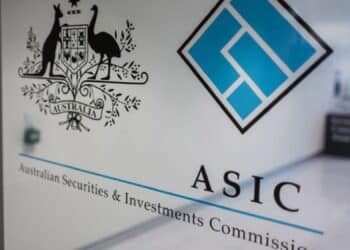The default superannuation regime is facing radical change under proposals put forward by the Productivity Commission (PC) including forcing a situation where people can only be defaulted into a fund once, rather than on the multiple occasions that currently exist.
In a report which appears to cut right down the middle of the arguments proffered by the retail and industry funds, the PC has favoured no side over the other, suggesting that too much rent-seeking occurs in the industry.
Where industry funds arguments about their pre-eminence in terms of annual returns is concerned, the PC has suggested that while it is broadly true, it cannot be said of all industry funds.
At the same time as strongly recommending a regime under which people can only be defaulted into a fund once, the PC has proposed three alternative default models.
- Assisted employee choice — this model leverages the competition benefits that arise when members exercise choice, but with information and nudges to assist members to make informed choices.
- Assisted employer choice (with employee protections) — this model injects competition by giving employers choice in selecting a default product for their employees, as long as the default product meets some minimum standards, while also simplifying choices for small and medium sized businesses.
- A fee-based auction and a multi-criteria tender — these models incorporate a market-based mechanism into the selection of default products, with sequential allocation of members among winning products.
Discussing its reasoning behind a one-time allocation to a default, the PC said, “The current system’s propensity to create multiple accounts is an egregious systemic failure”
“It warrants more than the incremental remediation to date. − This approach would result in a smaller pool of employees being defaulted each year, but it should be sufficient to generate competitive dynamics,” the report said.
It also suggested there should be a government-run centralised online information service, with universal participation by employees and employers, to facilitate more efficient allocation of default members to products and, possibly, a centralised clearing house (akin to New Zealand’s).
It also urged more transparency, arguing that more transparent disclosure by funds regarding merger considerations would serve to hasten the exit of underperforming funds.
The degree to which the report dismissed suggestions of it being an exercise in the ongoing battle between industry and retail funds was exemplified by its statement that it was unwise, as many have to date, to portray this Inquiry as just another ‘industry fund versus retail fund’ debate.
“This Inquiry is much more than that — it is a wake-up call to the entire industry, which some claim has become complacent with a steady flow of mandated contributions from disengaged members, and as an industry has failed to improve its scale and efficiency and deliver better outcomes for members (despite the MySuper reforms),” it said. “From this perspective, the Inquiry has managed to unite the superannuation industry against the Inquiry’s potential contemplation of more-than-incremental reform. A healthy dose of scepticism would suggest that there must be rents to be recovered for the benefit of members for such unanimity to be valid.”





